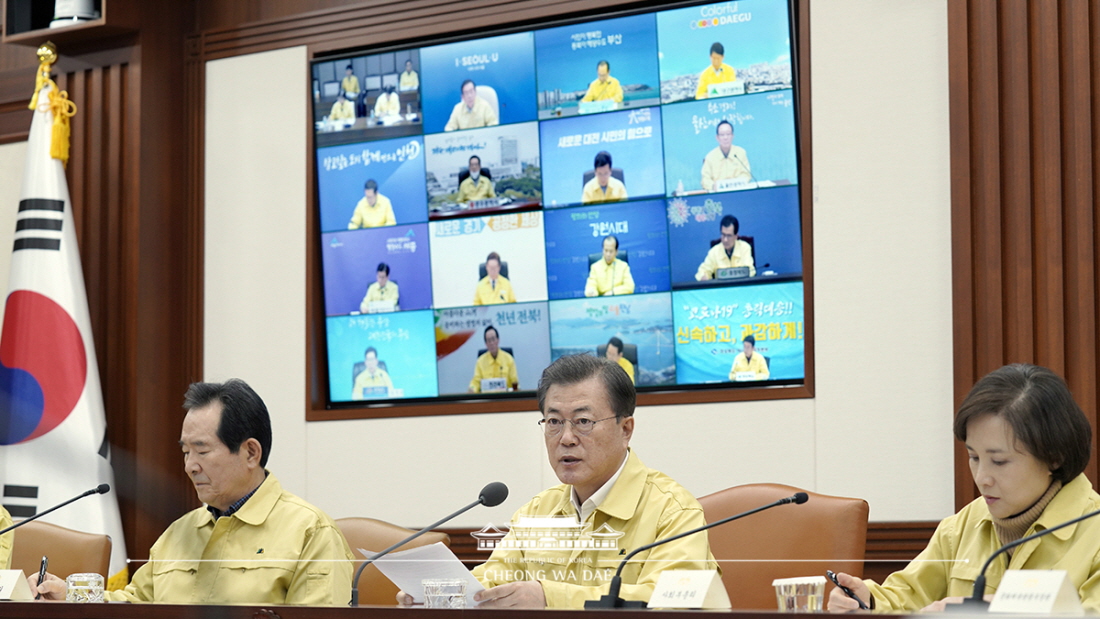이 웹사이트는 제19대 대통령 임기 종료에 따라 대통령기록관이 「대통령기록물 관리에 관한 법률」에 의해 이관받아 서비스하는 대통령기록물입니다. 자료의 열람만 가능하며 수정 · 추가 · 삭제는 불가능합니다.
다만, 「개인정보보호법」에 의하여 개인의 정보를 보호받기 원하시는 분은 관련 내용(요청자, 요청내용, 연락처, 글위치)을 대통령 웹기록물 담당자(044-211-2253)에게 요청해 주시면 신속히 검토하여 조치해 드리겠습니다. 감사합니다.
MEDIA

By Kim Hwaya
The government on Feb. 23 raised the national alert for the COVID-19 outbreak to the highest level of "serious."
President Moon Jae-in told an inter-agency meeting on controlling the outbreak he chaired at Government Complex-Seoul, "Based on advice from infectious disease experts, the government has raised the (coronavirus outbreak) alert level to the highest 'serious' and will bolster regional response systems."
The four-tier alert level comprises "attention," "caution," alert" and "serious," and this is the first time since 2009, when the country was hit by the H1N1 influenza virus, for the alert to reach its highest level.
On its decision to issue the highest alert level, the government said that though the country remains in the early stage of an infection starting and spreading from certain regions, a preemptive response was required considering the speed of transmission and the threat of further spread nationwide.
For the sake of consistency, the quarantine system was kept under the control of the Central Epidemic Control Countermeasure Headquarters under the Korean Centers for Disease Control and Prevention with support from the Central Disaster Management Headquarters under the Ministry of Health and Welfare.
The Central Disaster and Safety Countermeasures Headquarters was also promoted in being put under direct control of the prime minister.
The government pledged stronger responses befitting the "serious" alert level such as isolation of those infected to prevent further spread of the coronavirus.
Residents of Daegu were urged to stay at home as much as possible for at least two weeks, and people with COVID-19-like symptoms were asked to quickly get checked at screening clinics.
Telling people not to take part in events in cramped rooms or any group events, the government also postponed by one week the start of the school year for kindergartens, elementary, middle and high schools to March 9.
***



